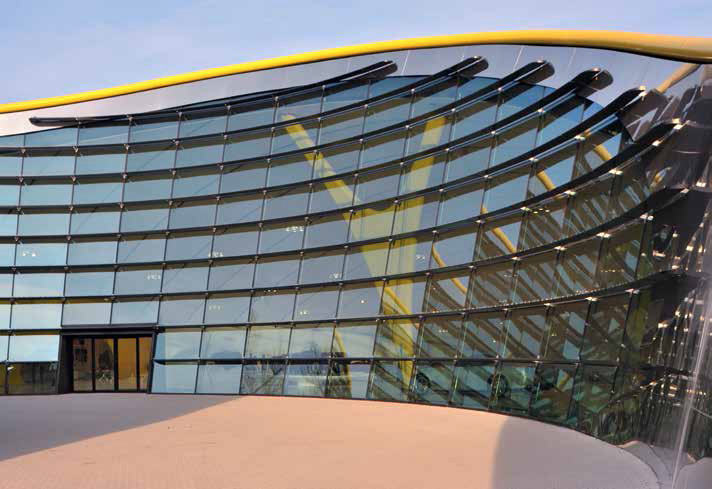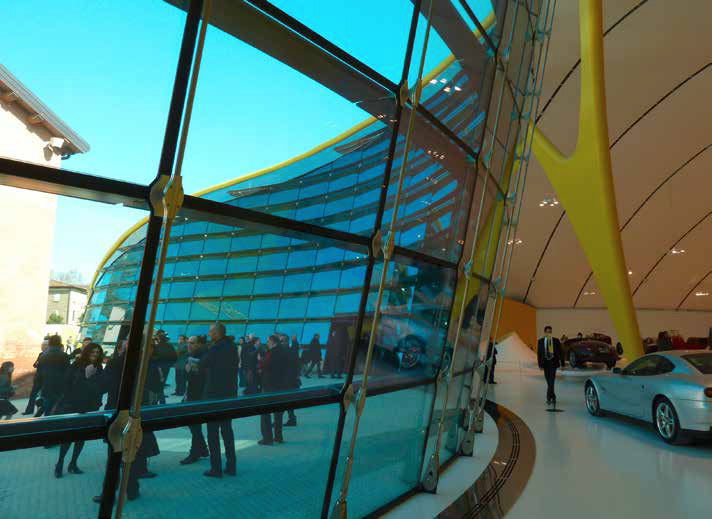ADVANCED INTERLAYER SOLUTIONS


The visually stunning cable-stayed glass facade that surrounds the recently-opened Enzo Ferrari Museum in Modena, Italy, is another outstanding demonstration of the qualities and capabilities of SentryGlas® ionoplast interlayer.
Today’s demand for special geometries and highly transparent building envelopes calls for innovative engineering solutions. Designed by Jan Kaplicky and Andrea Morgante of Future Systems, London, the 78 m (256 feet) long, 45 m (148 feet) wide Enzo Ferrari Museum has a geometrical shape and high transparency that are clearly inspired by sports car designs. The engineering philosophy on the project was to maintain a relatively simple geometry for the glass façade panels, which had to be assembled to adapt to the many different geometrical shapes by means of complex customised detailing. Italian engineering and architectural consultancy company Politecnica handled the façade design work.
The 11 m (36 feet) high cable-stayed glass façade is geometrically defined by two intersecting conical surfaces, inclined towards the interior of the building by 12.5°. The smooth, attractive curved shape of the façade was achieved by using straight cables and standard planar glass units. These had to be cut at specific angles in order to match the conical geometry.
The façade is supported by a 3D-curved circular hollow steel girder, which runs the entire length (62 m, 36 feet) of the building. This one metre diameter girder acts as a topside support for the cables of the façade. These cables not only support the glass units, but also transfer all the loads to the 3D-curved girder. The girder itself is supported by two hinged Y-shaped steel columns and braced by the steel roof structure.
A set of 32 mm (1¼") vertical stainless steel cables support the flat insulated glass units. The glass make-up comprises a 10 mm (3/8") fully tempered glass pane on the outside, with two 6 mm (¼") heat strengthened glass panes laminated with 1.52 mm (60 mil) SentryGlas® interlayer on the inside. The cavity within the glass is filled with argon and a solar control coating enables an Ug rating of 1.0 W/m2.
Application
Region
Interlayer
Architects
Laminator
Engineer






Keep up with the very latest news in laminated glass innovations and procedures by subscribing to our free Laminated Glass News.
Subscribe here